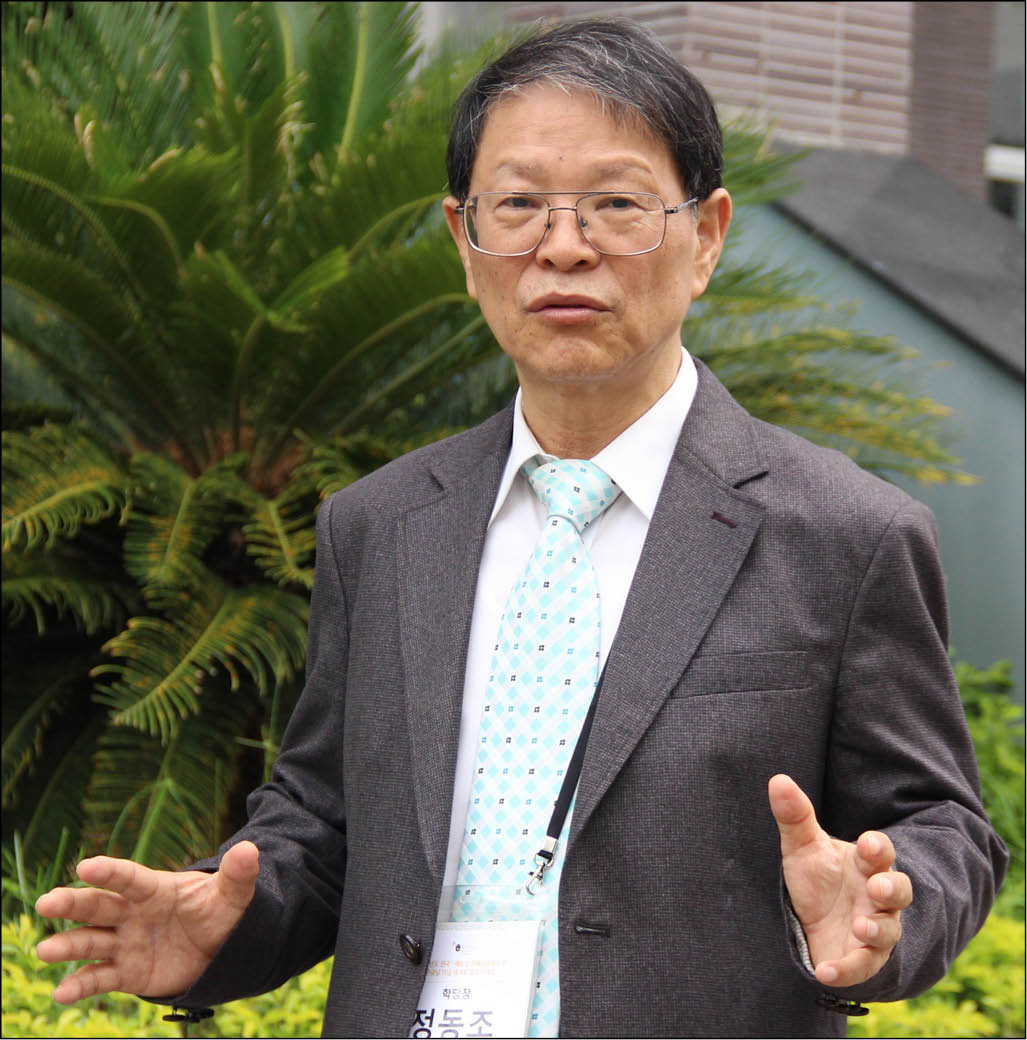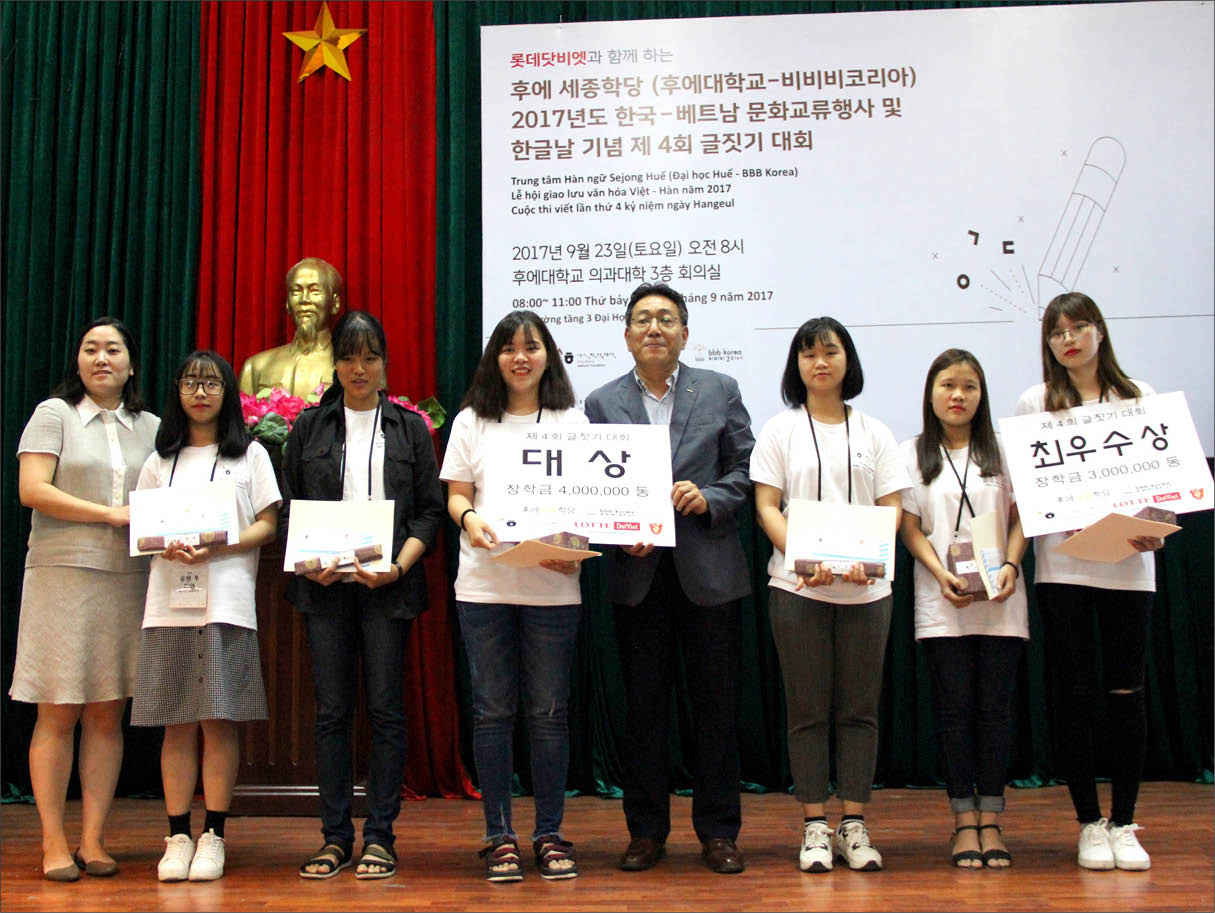" These activities aim at creating opportunities of education and Vietnam – South Korea cultural exchange for students," Mr. Jung Dong Jo, Director of King Sejong Institute in Hue said.

Mr. Jung Dong Jo, Director of King Sejong Institute in Hue
Sir, compared to the previous three times, what changes or innovations did the organizers come up with this time to boost efficiency?
This year, the Korean Writing Contest is held on a larger scale. There were 20 contestants from 10 King Sejong Institutes nationwide. It attracted 10 more candidates and 3 more institutes to participate in this contest compared to that of 2016. To promote contest fairness and popularity, contest topics are always kept secret until the last minute, only known to those who gave the contest questions, and of course chosen topics were given careful consideration. What is more, candidates, who want to participate, are required to have a long period learning Korean language and culture.
Being run concurrently with the Korean Writing Contest, the festival this year, has more activities apart from existing ones including visiting the Citadel and other Hue relics, and splendid sights. We added artistic performances from the two countries, featuring traditional songs, dancing and musical instruments. I think, this is a brilliant new idea.
Why did the organizers keep choosing Hue as a main venue for the Festival and the writing contest, sir?
We have 13 King Sejong Institutes across the country, and offices from the North to the South. Choosing Hue as the venue for the Vietnam-Korea cultural exchange festival in 2017 and the 4th Korean writing contest is a careful selection of the organizers. Hue is located in the center of Vietnam, so this is a convenient location for contestants from the two ends of the country to participate. Moreover, the Institute in Hue has adequate conditions to hold the events in terms of human resources and facilities.
The most distinctive feature is that Hue is the former capital of the country. From what I know, in the past, candidates all over the country had to go to this city to take a national test. Organizing the Korean writing contest right in this place is a way of reconstructing that interesting story. In addition, Hue is a land of history, rich in culture, so choosing Hue to organize a cultural exchange festival is very appropriate. Students from King Sejong Institutes in other provinces also have a chance to enhance their understanding of this unique former capital, so they will be more informative when introducing Hue to Koreans.

The prizes for the 4th Korean Writing Contest were awarded.
The plans of these events were carefully developed by organizers, so do you think the main aim (creating opportunities of education and Vietnam – South Korea cultural exchange for students) was fully achieved?
I myself felt satisfied with what we achieved and so did those who were involved. Obviously, these events create scholastic atmosphere, and more importantly bring students chances of Vietnam- Korea cultural exchange.
Participants in this festival and competition are mainly school and college students. As we all know, culture of a host country in general, covers diverse topics and culture of a guest country is even a broader theme that not all participants have knowledge of. Therefore, organizing the Vietnam-Korea Cultural Exchange Festival and Korean writing contest is necessary, bringing great benefits for students. We consider this another success.
School and college students are young intellectuals having easier access to cultural values. Of course, having full comprehension of a culture cannot be achieved merely by getting involved in a festival or competition. However, these events can act as a trigger, making students dig deeper into the culture of interest to them. Another fact I want to add is that all writing contest candidates qualified to the finals are selected from the preliminaries, so most of them are intermediate to advanced Korean learners who are studious and passionate about doing research. After these events, it is likely that more cross-cultural studies will be done by participants.
How about some desired goals that you and the organizers cannot achieve this time?
I wanted to share that during the festival and competition, the representatives of the King Sejong Institute co-founders and sponsors also came and joined us. Their presence, the increased scale of contest organization, and the bigger number of contestants and institutes participating in the contest are convincing evidence of success.
So what are your plans for next year events?
We learned a lot from this year’s festival and contest to make next year’s competition more successful. Certainly, the primary goal of the festival and Korean writing competition is always creating opportunities of education and Vietnam – South Korea cultural exchange for students. We will try to create a variety of activities, types of contests, ways of holding the events as well as choose an interesting theme for the next year writing contest to achieve all desired goals.
Thank you for your talk.
By Huu Phuc
